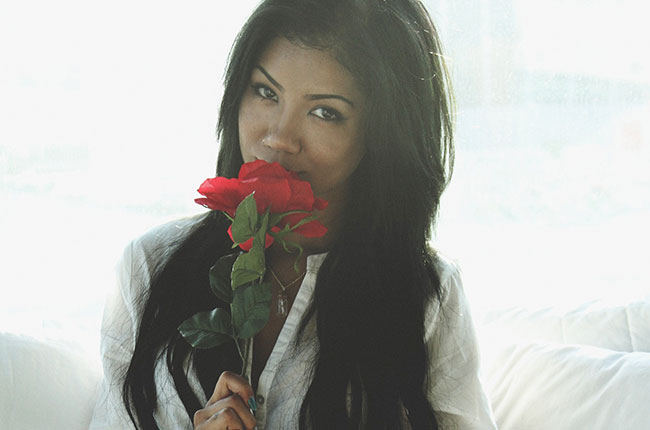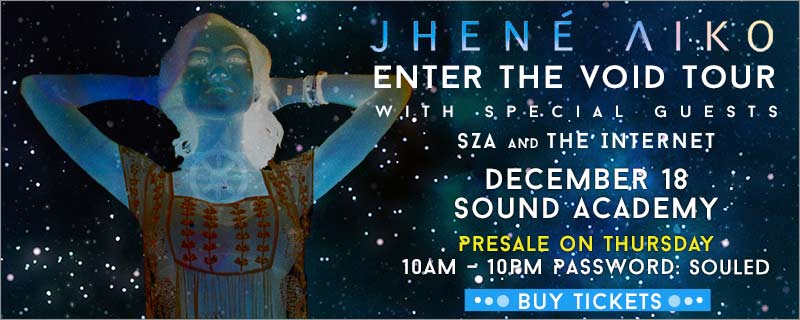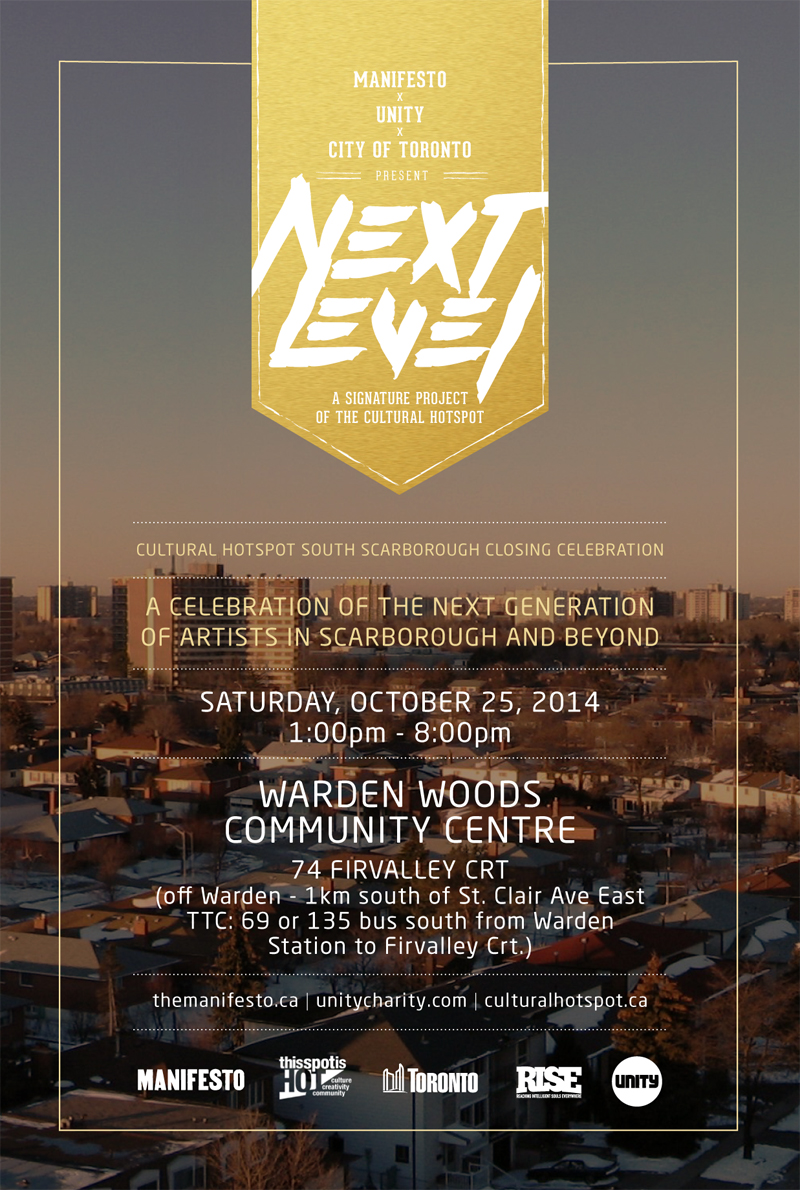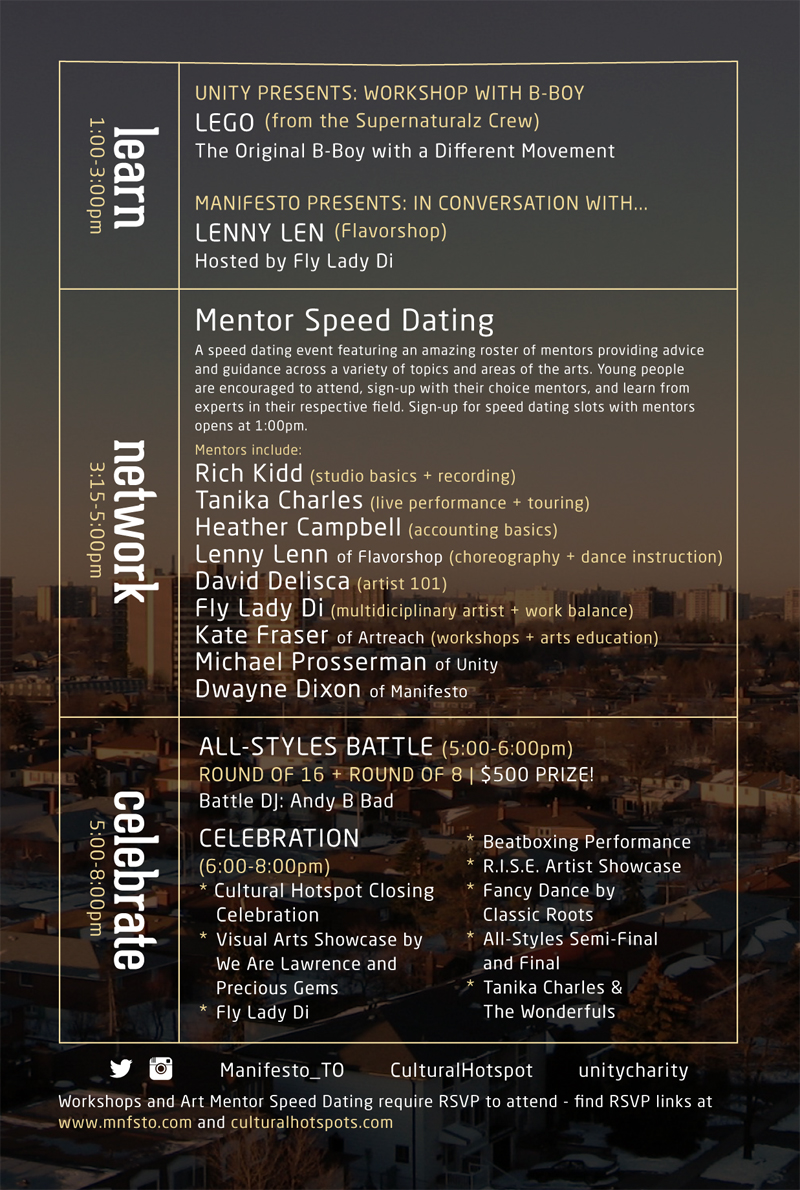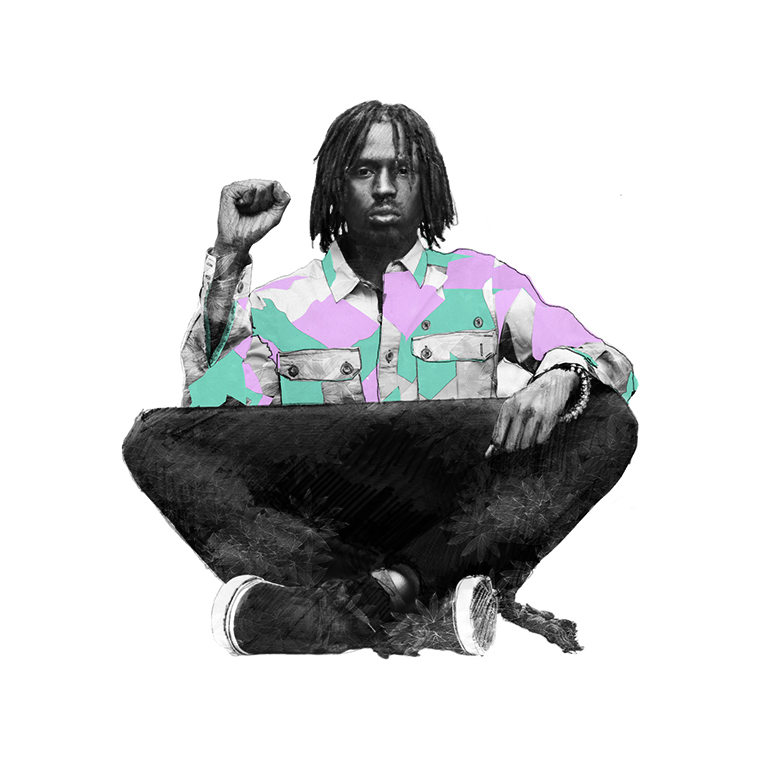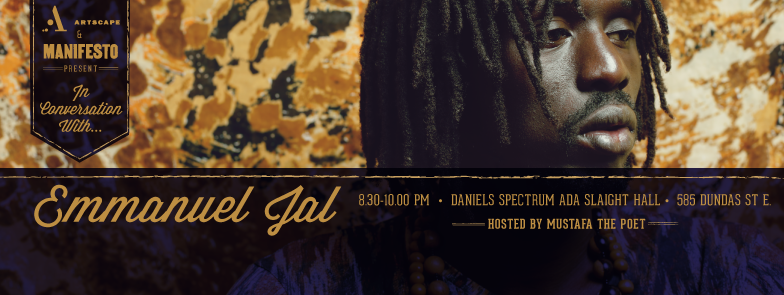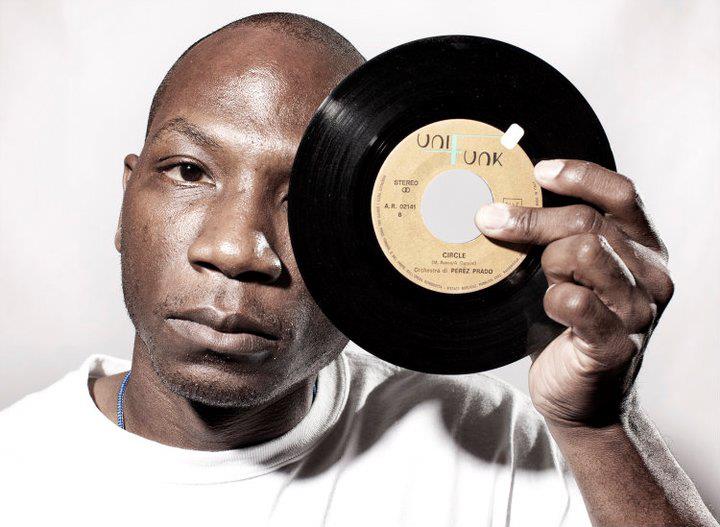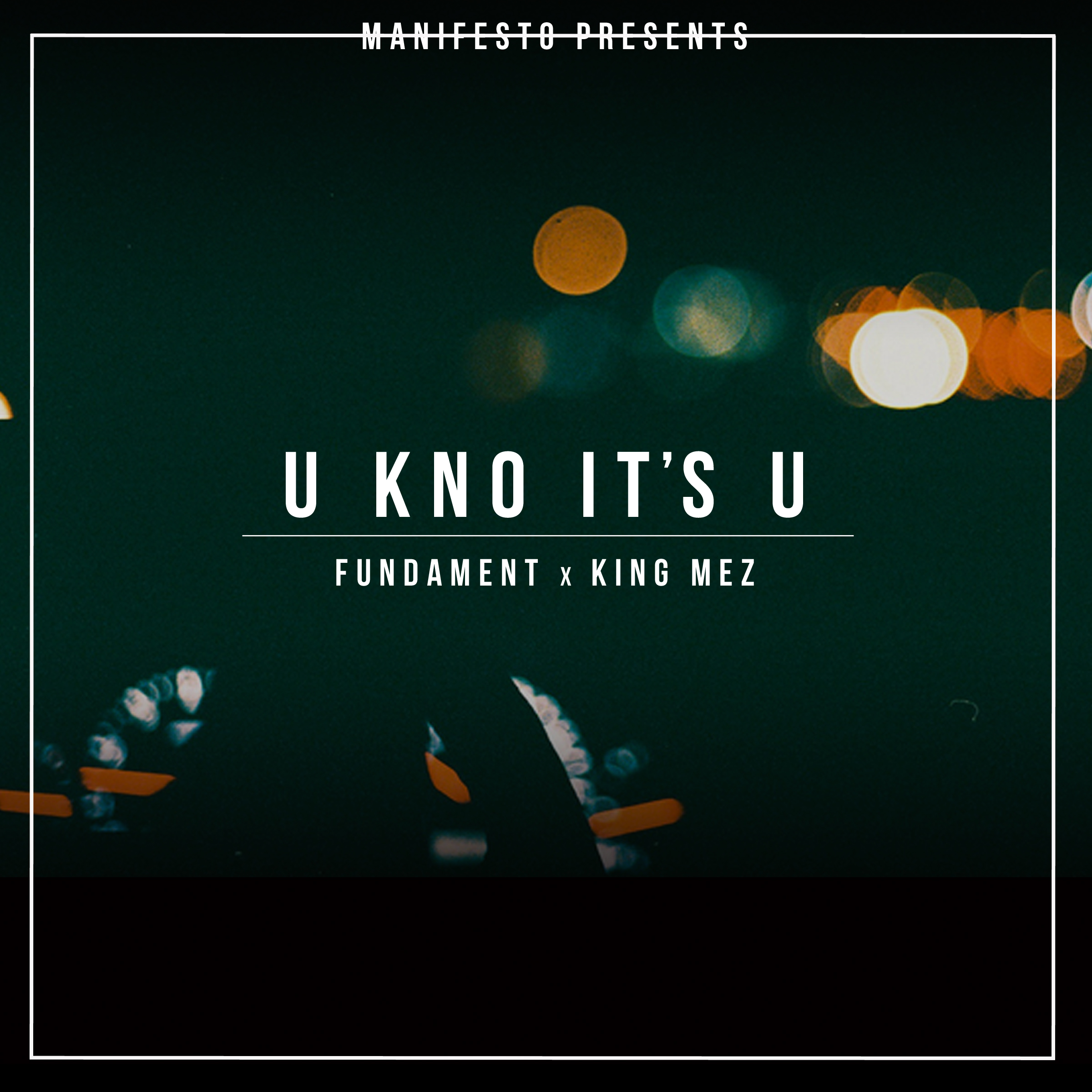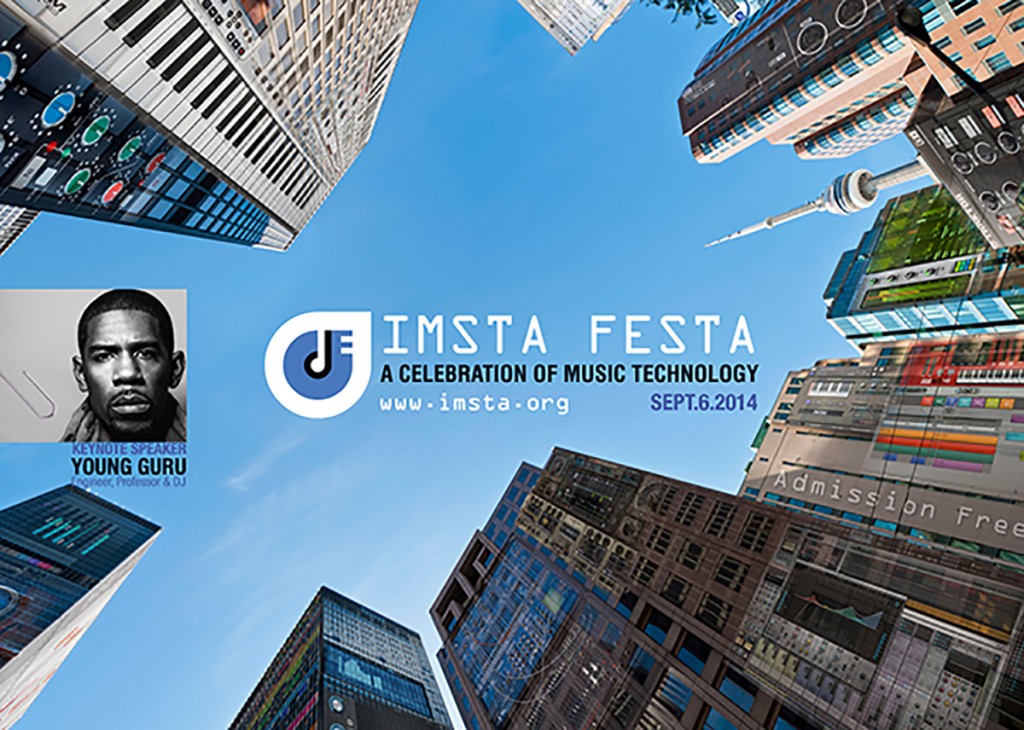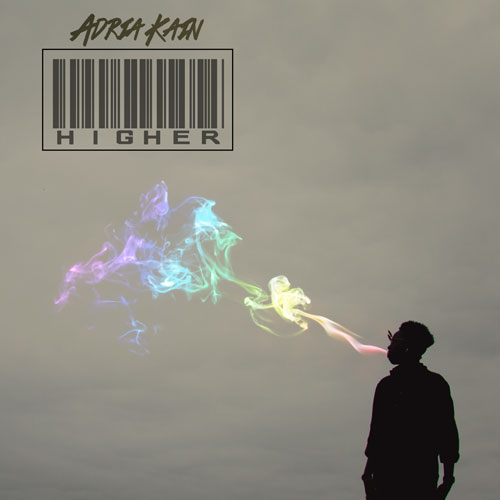By Erin Lowers
“…Be honest. As long as you tell your story and be true to yourself and just do it, no matter what, people will be attracted to it. And when you do it, do it planned out and make sure everything is quality. Quality over quantity.”
Since the age of 13, Bishop Nehru – then known as Kelz Scott, has been making music. Uniting jazz and hip-hop production, the Rock Country, NY, artist went on to release his debut mixtape Nehruvia at the age of 15, and swiftly captured the attention of New York’s premier radio directors. Now, at the age of 18, Bishop has received co-signs from the likes of Nas, Kendrick Lamar and the international man of mystery MF DOOM, who he’s collaborating with on their joint release, NehruvianDOOM. We had a chance to speak to Bishop Nehru to discuss his musical influences, Big Daddy Kane and working with MF DOOM on NehruvianDOOM, which is set to drop three days (September 23) after he co-headlines Toronto’s 8th Manifesto Festival of Community & Culture Live at the Square show on September 20.
Perhaps a lot of people have heard your name by the Doom association or Nas and Kendrick co-signs, but can you tell me who Bishop Nehru is as both a creative person and as a creative artist?
Hey, I’m Bishop Nehru. I’m an artist, I direct, I record most of my own tracks, and yeah I rap. I’m pretty much just an artist, I like art as a whole.
Your name itself juxtaposes two very different state of minds. Why did you slide the two names together? What do they represent to you both on their own and together?
‘Bishop’, because [the word] bishop is like a spiritual advisor, and I feel like that’s what music can do. And also the ‘Bishop’ from [the movie] Juice was about respect. I like the character’s drive to be respected, but I’m not saying that I’m gonna go to the certain extent of murdering my friends for that purpose, but I just liked his attitude towards having self-respect by any means and keeping it. That’s something I always wanted to do; just do dope shit and by having a talent. That’s where ‘Bishop’ comes from. ‘Nehru’ comes from the first Prime Minister of India who worked alongside Gandhi, and a lot of the stuff I was into in high school revolved around those teachings and things of that nature, so ‘Nehru’ resonated with me a lot. That’s why I decided to use that.
You’ve also previously mentioned that you have a ‘Nas’ side and a ‘Tupac’ side. Can you elaborate on that and how that came into light?
I guess what I meant by that is like, there’s a certain type of element as far as their content. It’s like they were both rebels in their own way, but they have their own ways of being rebellious. Nas is kind of stealth and his music is super lyrical and amazing and he makes amazing content as well, but his rebelliousness is not as crazy as Tupac’s. Tupac was very — not crazy with his rebelliousness — but he was more active with his rebelliousness outside of music. This is what I envision while presenting my music. Sometimes I want to make a song that’s super lyrical and I want you to think about it, but sometimes I just make a song that I know is going to resonate you. It may not be the most lyrical song, but as a song, it’s a very powerful and meaningful song. That’s kinda what I meant by those two.
‘90s babies get a bad rap on not knowing anything about the Golden Era of hip-hop but that’s where you thrive. Aside from Nas, who were you listening to growing up? How did you get into this era as opposed to the musical era you grew up in?
That really was the music that was around in my time. To me, that’s normal because that’s what people around me were listening to. Like, one of my cousins literally only listened to G-Unit and then Eminem, Shady and Dre and all them. As I was getting into Eminem, obviously I was getting into 50 and Dre. While my cousins were listening to this, I was going home and looking up [50 Cent’s] music. And then listening to Eminem and Dre, listening to Dre you’re obviously going to get to Tupac. Tupac I’ve known [about] for a while, but I wasn’t really heavy into hip-hop before age 7 or 8. My cousins loaded it up on me. Before that I was into the music at the school, and what they were providing which was more musical stuff like Herbie Hancock and Duke Ellington, Louis Armstrong – the stuff they teach you during Black History Month. I don’t know, I was really getting into the jazz era. I just took great music from everywhere. They [the neighborhood] never really listened to any Southern stuff, and my cousins down South would be like ‘You need to get on this’ and then I’d go back to New York and my cousins would be like ‘Nah, don’t listen to that, that sh*t is trash!” I have cousins from North Carolina and cousins from New York; my North Carolina cousins were into Lil Wayne, Juvenile and the whole Cash Money Records. I was getting exposed to both while I got to choose on my own who I wanted to listen to. There was certain people at Cash Money that were dope to me – Lil Wayne dope to me. He’s cool, he was really dope and still is now. Whatever I chose to resonate with is what I took from. My aunt is a huge Nas fan and been a Nas fan for the longest, and she has all his albums, so that was around and I just picked off that. My grandma used to listen to old soul like Al Green, Luther Vandross, Anita Baker, Aretha Franklin, Michael Jackson – all the Motown era stuff, so it’s kinda like, I’ve been exposed to different varieties of music. I was never exposed to the current “trill” or “trap” music, whatever you call it. I was never listening to that, so that’s kinda a new thing. Honestly, like when Waka Flocka came out, that’s the first time I’ve ever heard of trap. I was never on things like social media, I used to just make music on my own, so there wasn’t really ways for me to know like ‘Wayne dropped this new tape down South’. If somebody down South dropped something, I’d have to hear it from Jay Z or the radio. I listen to my own iPod and stuff, like Big Daddy Kane. One of the first raps I can remember myself [singing] was Big Daddy Kane’s “Warm It Up Kane”.
That’s incredible! Have you ever seen him live?
Nah! I saw the video when he dropped the mic on purpose, it was so dope. When he freestyles and then dropped the mic, it was crazy. When he dropped it, everybody was like ‘OHHH!’ and then he’d pick it up and then he’d freestyle right back like ‘Da da da da!’ That’s a good performing, but I’m still a youngin’ – I’m only 18. There’s no way I could’ve possibly caught him.
He still performs!
He’s still performing like back in the day too? Is his effort still the same?
Nah, maybe not like that. He’s older now…
Yeah, I have to check him out. LL too. I wanna work with that n*gga. That n*gga’s awesome. LL Cool J is so f*cking dope.
Your joint project with DOOM is set to be release in just under 2 weeks. How excited are you?
I’m not really excited, I just want it to be out. I wanted it to be out like last month!
What was the most exciting part of the recording process for you?
Probably just being in London with the studio with him and travelling back and forth. That was the best part.
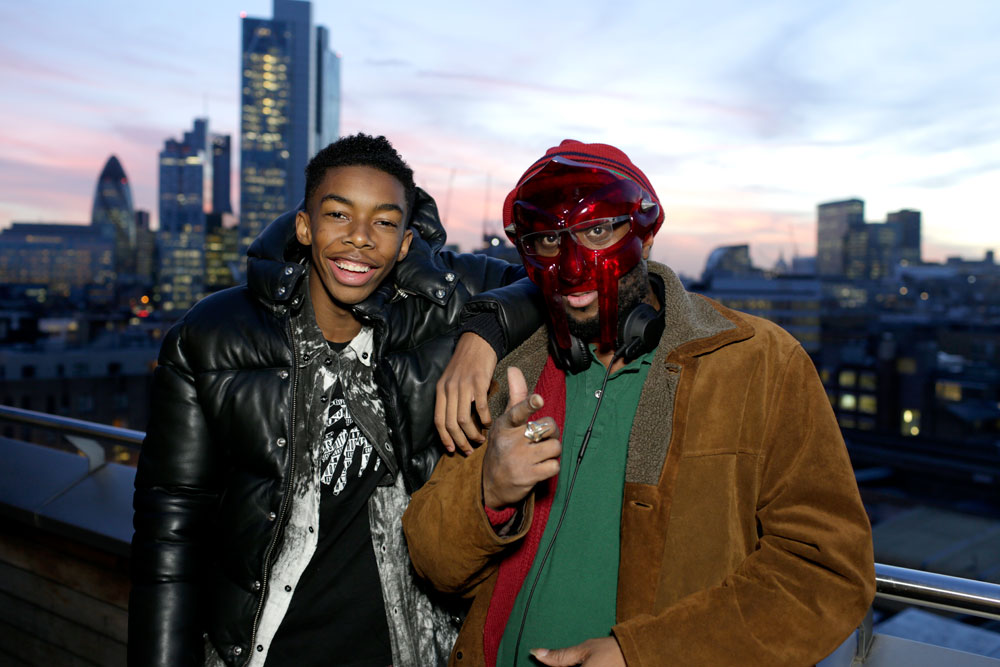
Is there anything DOOM taught you in the recording process that you didn’t know before?
He taught me a little more about sampling. That’s something that I always had a little trouble with, so he helped me out. I was overthinking it, pretty much. He was like ‘If you know how to do this on the keyboard, and you know how to play your actual song on the keyboard and know the melody of the song and play it on the keys, you can sample.
What would you want listeners to take away from NerhruvianDOOM?
I guess just to know that the project is nothing but positive. If you hear something, don’t think its some negative sh*t. Everything in the album is with positive intentions.
A lot of Manifesto’s core audience are youth who aspire to be like you – this 18-yo prodigy. Do you have any words of advice for them?
Well pretty much, just do it. To be honest. As long as you tell your story and be true to yourself and just do it, no matter what, people will be attracted to it. And when you do it, do it planned out and make sure everything is quality. Quality over quantity. That’s the essential. And you don’t have to rap or make music either, you can do other shit like be a photographer, you can paint, you can draw, you can be anything. I don’t want you to take away that message.
One of the questions often asked in a Manifesto interview is “What’s your Manifesto?” So, of course I’d like to extend that question to you as well.
Nehruvians or nothing. Nehruvians are people who are in charge of themselves; who have compassion inside of themselves. That’s basically what’d I’d like to take from my everything. I’m not just going to do music, I want to do film, I want to do everything with compassion, with love, with light. This is my vision and the things that I see.
